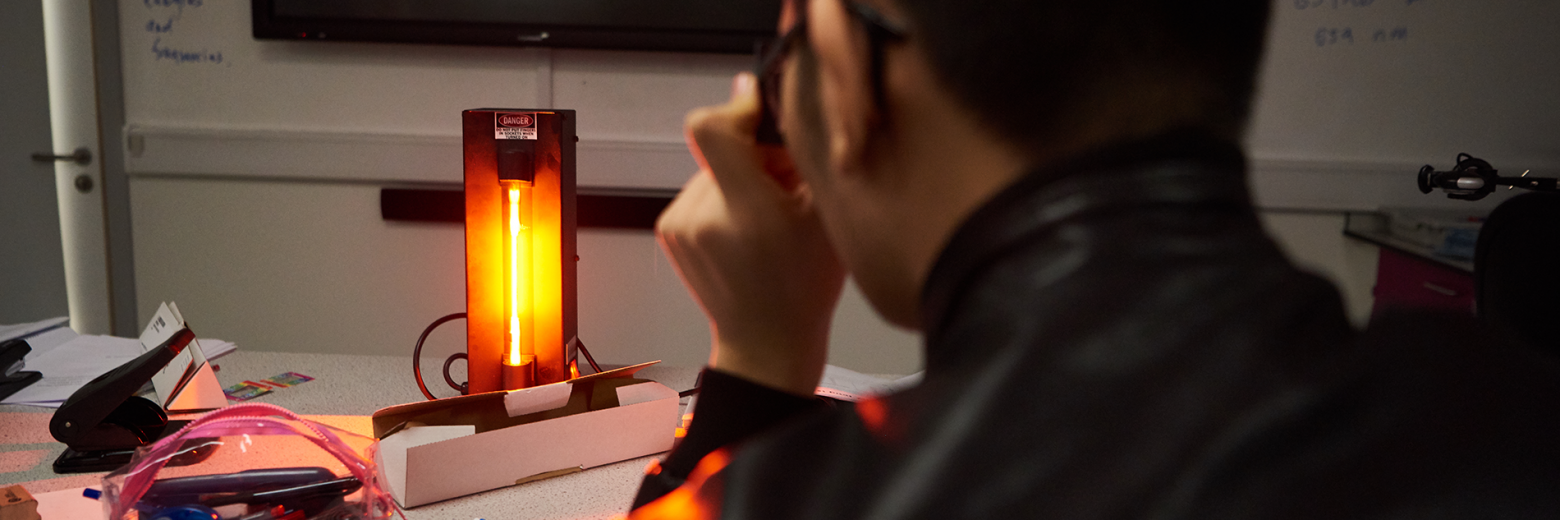PHYSICS
In GCSE Physics you will learn about some of the most important discoveries and gain an understanding of how some of the latest advances have been made and verified.
WHAT IS PHYSICS?
The world we live in has been completely transformed by the scientific developments of the last 200 years. In GCSE Physics you will learn about some of the most important discoveries and gain an understanding of how some of the advances were made and verified.
WHAT WILL I STUDY?
We want to help develop an interest in and an enthusiasm for Physics. GCSE Physics students are given the opportunity to acquire the skills, knowledge and understanding necessary for progression to further learning. In addition to developing an understanding of scientific concepts, the course is designed to develop students’ ability to apply ideas and evaluate information.
GCSE courses have changed. Starting from 2017, the new GCSE results are scored from 1 – 9, with a level 5 being a good pass and level 7 equivalent to an A grade.
We will be following the OCR Gateway qualification. The content is divided into eight teaching topics. These are:
| Topic | Ideas covered /strong> |
| P1: Matter | The particle model; changes of state; pressure in gases and liquids |
| P2: Forces | Motion; Newton’s Laws; fields and forces causing changes |
| P3: Electricity | Static and charge; simple circuits; electrical current, potential difference and resistance |
| P4: Magnetism and magnetic fields | Magnets and magnetic fields; uses of magnetic fields |
| P5: Waves in matter | Behaviour of mechanical and electromagnetic waves; the electromagnetic spectrum |
| P6: Radioactivity | Radioactive emissions; radioactive decay |
| P7: Energy | Work done; power and efficiency |
| P8: Global challenges | How objects are affected by external factors; electricity production; characteristics of planets |
There is also a practical activity skills topic, P9 (students complete 8 key practicals); and the skills will be assessed in both exams.
WHY SHOULD I STUDY PHYSICS?
GCSE Physics helps you to understand how the world works, from everyday things like microwave ovens and mobile phones, to the birth and death of stars and what happens inside atoms. It trains you to think logically and solve problems. It is great preparation for many careers including engineering, architecture, law, science and medicine.
HOW IS IT ASSESSED?
| Paper | Modules | Weighting | Length | |
| 1 | P1-P4, P9 | Section A – multiple choice questions (15 marks) Section B – structured questions including extended response (75 marks) | 50% | 1h 45 min |
| 2 | P5-P8, P9 (with assumed knowledge of Topics P1-P4) | Section A – multiple choice questions (15 marks) Section B – structured questions including extended response (75 marks) | 50% | 1h 45 min |
WHAT DO I NEED?
GCSE Physics requires an enquiring mind, a desire to see how things work and to uncover the basic rules that govern the universe. You should be a person who never accepts blindly what you are told but always looks for the evidence which backs it up. It helps if you can think logically and if you are good with Maths.
NOTES/READING LIST
OUP Textbook OCR Gateway GCSE Physics Student Book by Helen Reynolds ISBN: 978-0198359838 CGP New Grade 9-1
GCSE Physics: OCR Gateway Revision Guide with Online Edition (2016), ISBN: 978-1782945680 CGP New Grade 9-1
GCSE Physics: OCR Gateway Exam Practice Workbook (2016), ISBN: 978-1782945178



